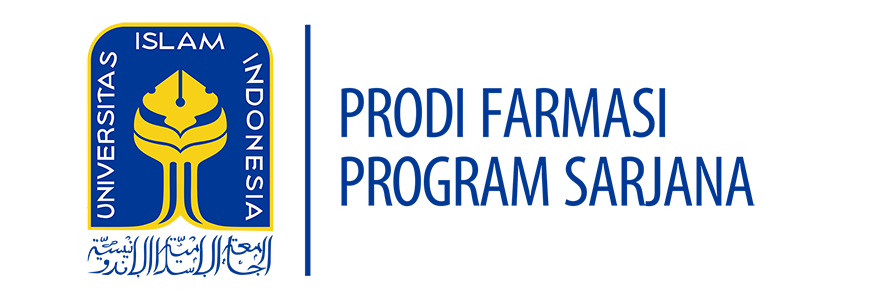| Module Name |
Pharmacognosy and Traditional Medicines |
| Module level, if applicable |
2nd year |
| Code, if applicable |
SFA-328 |
| Semester (s) in which the module is taught |
3rd semester |
| Person responsible for the module |
Dr. apt. Asih Triastuti, M.Pharm |
| Lecturer(s) |
Dr. apt. Asih Triastuti, M.Pharm. |
| Language |
English-Indonesian |
| Relation to curriculum |
Compulsory course |
| Types of teaching and learning |
Class size |
Attendance time (hours per week per semester) |
Forms of active participation |
Workload |
hour |
| Lecture |
50 |
1.5 |
Discussion |
Lectures: 1.5 (hour) x14 meeting |
21 |
| Preparation and follow up: 3 (hour) x 14 (self-preparation) |
42 |
| Practical: 1.5 (hour) group learning (group-learning) x 6 meeting |
9 |
| Preparation and follow up: 2 (hour) self learning x 4 meeting |
8 |
| Total workload |
80 |
| ECTS |
2.86 ECTS |
| Credit points |
2 credits |
| Requirements according to examination regulations |
Minimum attendance at lectures is 75%. Final score is evaluated based on assignment and quiz (45%), mid semester exam (20%), and end semester exam (25%). |
| Recommended prerequisites |
Medicinal Plants and Simplicia |
| Related course |
– |
| Module objectives/intended learning |
After completing the course students are able to:
- Explain the path of biosynthesis and decipher the types of secondary metabolites of medicinal plants
- Explain the pharmacological effects of secondary metabolite compounds of medicinal plants
- Choose medicinal plant extraction techniques based on the properties of compounds
- Explain the types, groups, and regulations of making traditional medicines based on medicinal plants
- Explain the quality requirements of traditional medicines and standardize the general parameters of extracts based on applicable regulations
- Disciplined and responsible in the learning process. Especially discipline and responsibility in the class attendance and duties given
|
| Content |
Pharmacognosy and Traditional Medicine courses in curriculum 2017 are given to students of 3rd semester with a weight of 2 credits. This course is a compulsory course with prerequisites to have completed the courses Medicinal Plants and Simplisia. This course aims to support graduate learning achievements in the form of basic knowledge of pharmaceutical science and the scope of pharmaceutical work. The main purpose of this course is that students are able to explain about secondary metabolites as active compounds of medicinal plants, conduct selection of medicinal plant extraction techniques, and be able to explain the type, group, quality and regulation of making traditional medicinal preparations based on medicinal plants in Indonesia. |
| Study and examination requirements and forms of examination |
Mid-term, final term, assignment, quiz |
| Media employed |
Text books, slides (power points), video |
| Reading lists |
- Bruneton, J. 1999. Pharmacognosy-Phytochemistry medicinal Plant. 2nd ed. Lavoisier. USA
- Trease & Evans, 2008, Pharmacognosy, 15th ed. Elsevier.
- Mukherjee,P.K., 2008, Quality Control Herbal Drugs: An Approach to Evaluation of Botanical, Business Horizons, India
- Decree of the Head of the National Police Agency No HK. 00.05.4.2411 concerning Basic Provisions for the Classification and Labeling of Indonesian Natural Medicines
- Head of Food and Drug Administration Regulation No. 12 of 2014 concerning Quality Requirements for Traditional Medicines
- Health Department Republic of Indonesia. 2000. General Standard Parameters of Medicinal Plant Extracts. General Director General of Food and Drug Administration. Directorate of Traditional Medicine Control.
|
